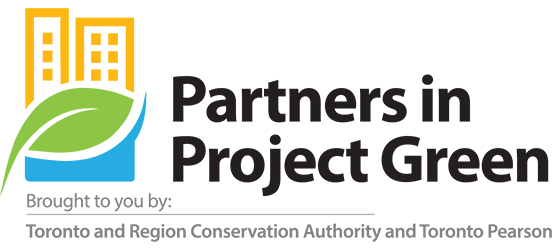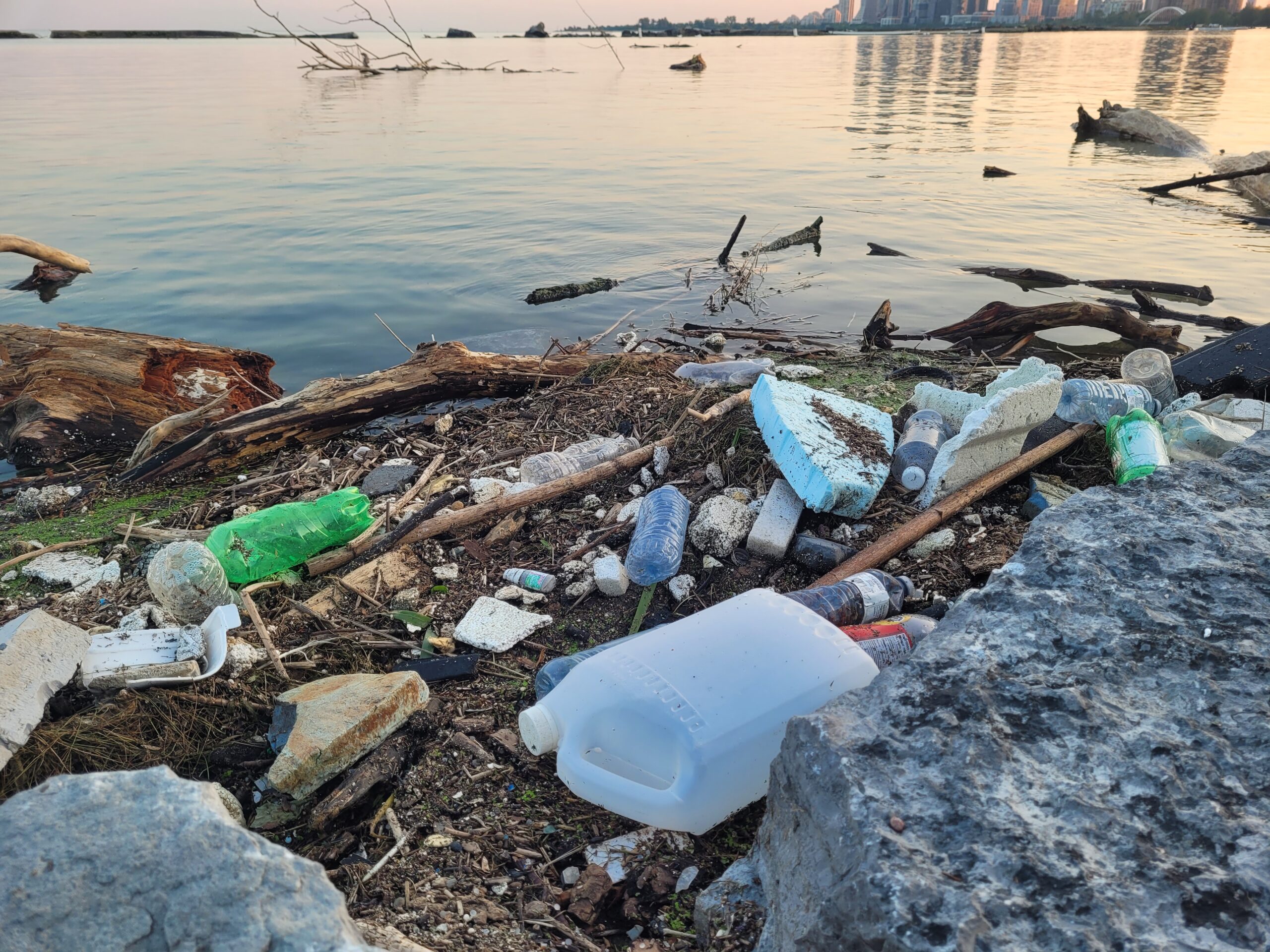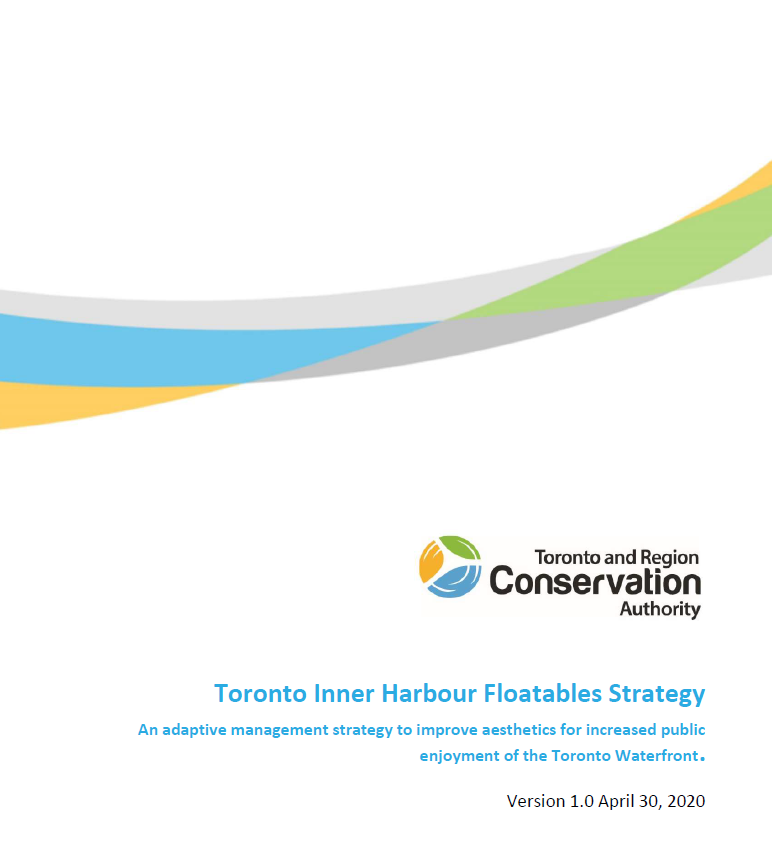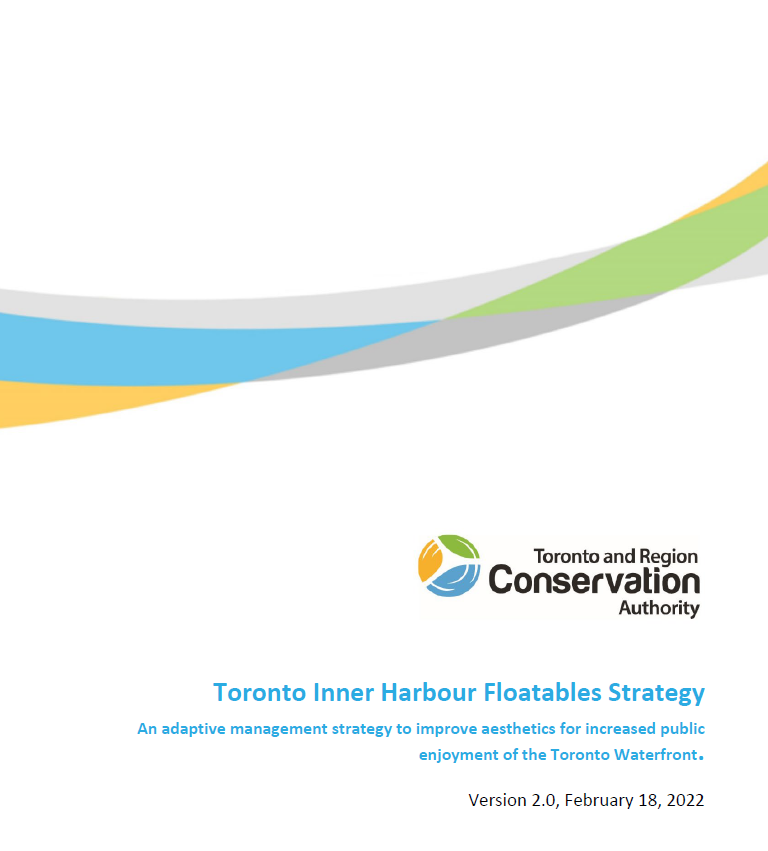The Toronto Inner Harbour Floatables Strategy
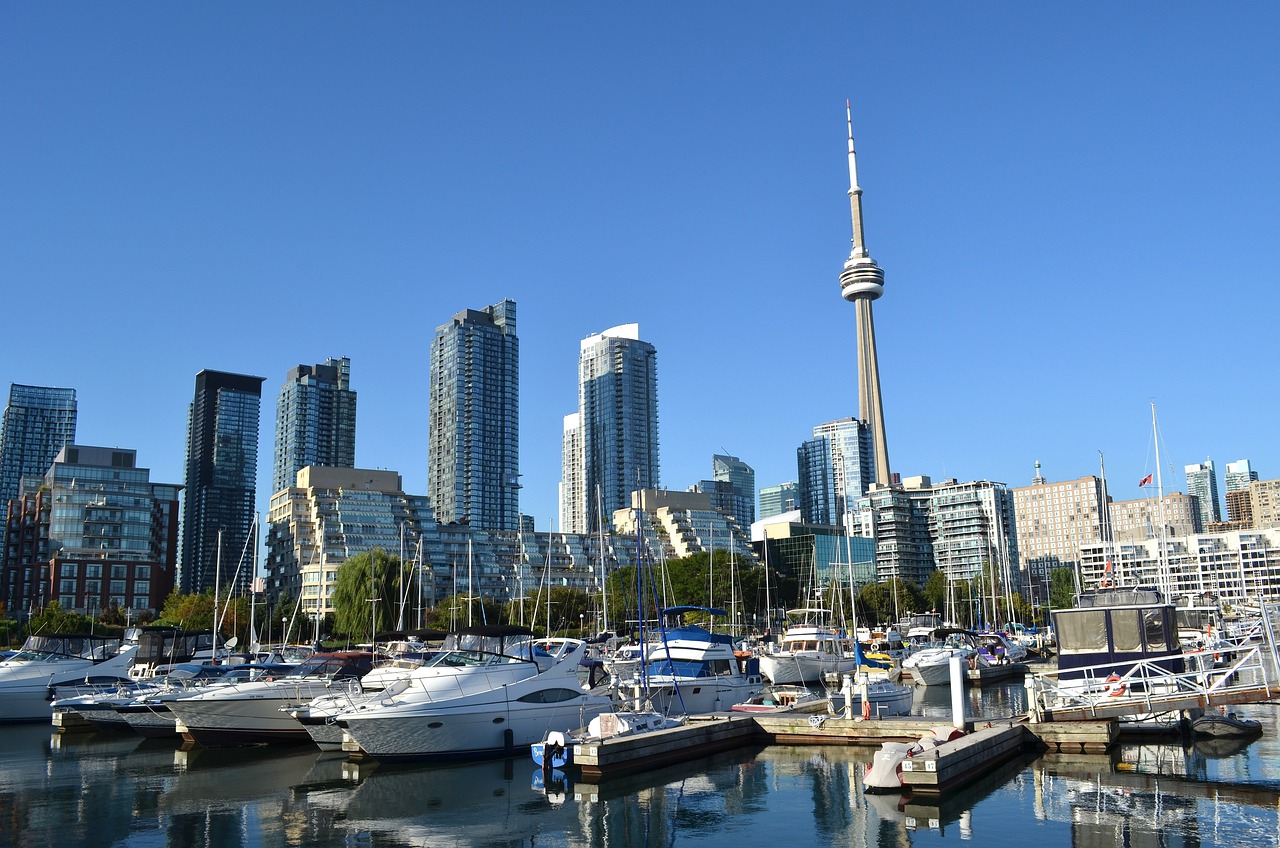
Floatable Waste Collaborative Action in Lake Ontario and Toronto’s Inner Harbour
Between 2023-2026, the Floatables Strategy is delivering projects to prevent floatable plastic and litter pollution throughout Toronto waterways and Lake Ontario.
Trash Trapping Results:
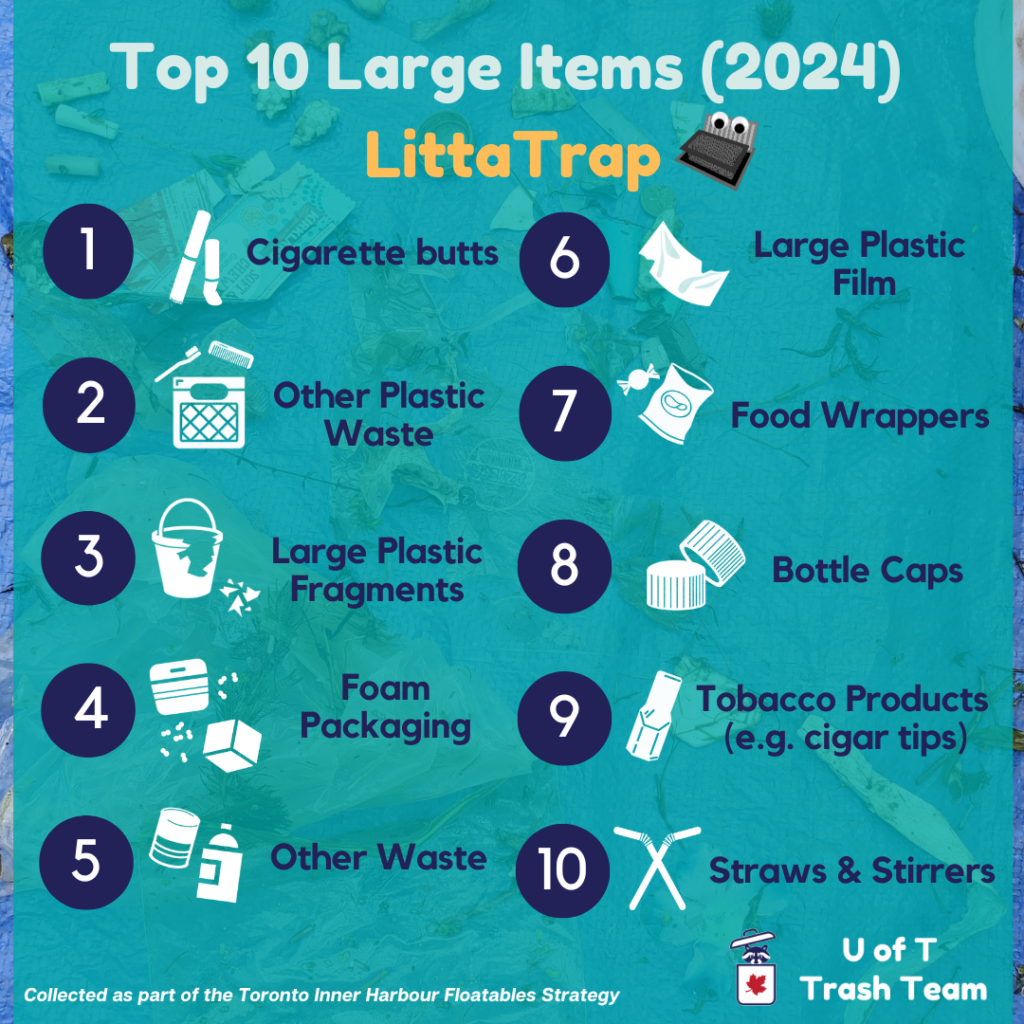
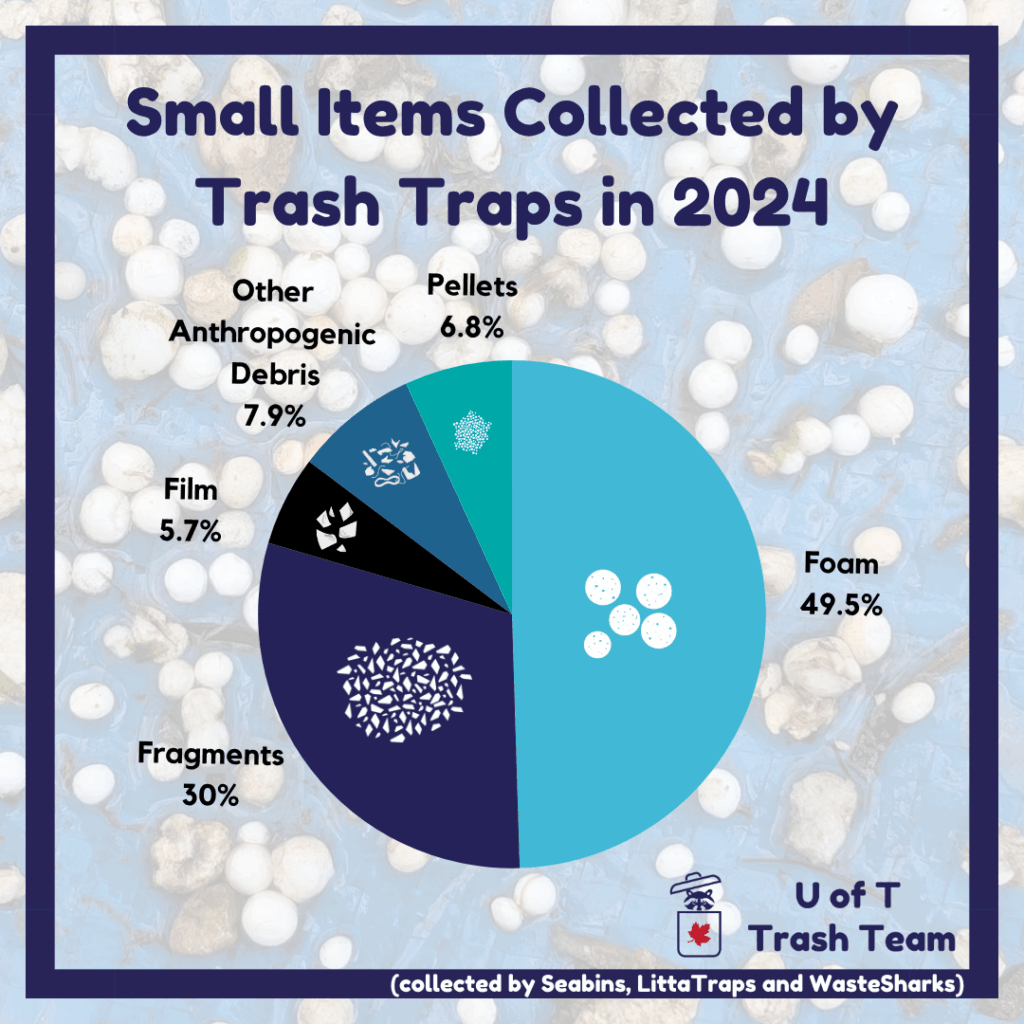
The results from the 2024 Trash Trapping season have been released! 642kg of anthropogenic litter was collected from Toronto waterways using Seabins, LittaTraps, WasteSharks, Litter Booms, and skimming by hand. That’s nearly the weight of 3,800 hockey pucks!
What is the Floatables Strategy?
The Toronto Inner Harbour Floatables Strategy (Floatables Strategy) is a collaborative strategy with a mission to reduce plastic pollution and other floating litter in the harbour. It is a collaboration between the Toronto and Region Conservation Authority the Toronto Remedial Action Plan, University of Toronto Trash Team, PortsToronto, City of Toronto, Swim Drink Fish, Waterfront Business Improvement Area, Harbourfront Centre, and Waterfront Toronto.
Partners in Project Green oversees the Floatables Strategy on behalf of the Toronto and Region Conservation Authority.
Vision: A City of Toronto Inner Harbour that is free of floatable pollution and supports a thriving aquatic ecosystem, diverse and accessible recreational opportunities, and a vibrant empowered community.
Mission: We work collaboratively with stakeholders and community to maintain an adaptive and evidence-informed strategy to reduce floatable pollution in the Toronto Inner Harbour through ongoing prevention, monitoring, cleanup, outreach, education, and policy.
Floatable Pollution: Floatable pollution is any anthropogenic material that becomes litter in the aquatic ecosystem, and is attributed to a variety of sources in the environment, both upstream and downstream. It does not include natural materials such as floating macrophytes or woody debris.
Our mission and vision are focused on items such as floating plastic litter and other municipal (e.g., aluminum cans, wet wipes) and industrial (e.g., plastic pellets, construction foam) anthropogenic solid waste that becomes litter or debris in the environment.
Share Your Floatables Sightings
Have you spotted areas of concern for floating plastic pollution? Let us know! This information will be used in addition to our annual trash trap monitoring to inform potential mitigation efforts.
Background
Conversations between the U of T Trash Team and PortsToronto began in 2017 with the goal of bringing trash capture devices to the City of Toronto’s waterfront. Together, they developed standardized protocols to quantify and characterize litter in devices, and have been using these protocols to quantify impact, characterize sources and inform local policies.
To build on this momentum, PortsToronto and the U of T Trash Team proposed creating a 5-year strategy to address floatable pollution in the Toronto Inner Harbour. The ideas and actions for this strategy were formalized under Version 1.0 of the Toronto Inner Harbour Floatables Strategy (2019) by the Toronto and Region Conservation Authority, with funding from Environment Canada, and support from several other partners (see below).
With support from the Ministry of the Environment, Conservation and Parks, select actions in Version 1.0 were implemented through 2020 – 2021 and in February, 2022, Version 2.0 of the Toronto Inner Harbour Floatables Strategy (2022) was developed.
The Floatables Strategy represents the Toronto Remedial Action Plan commitment to addressing the “degradation of aesthetics” Beneficial Use Impairment associated with excessive floating debris, odour, and unnatural turbidity of the Toronto Waterfront.
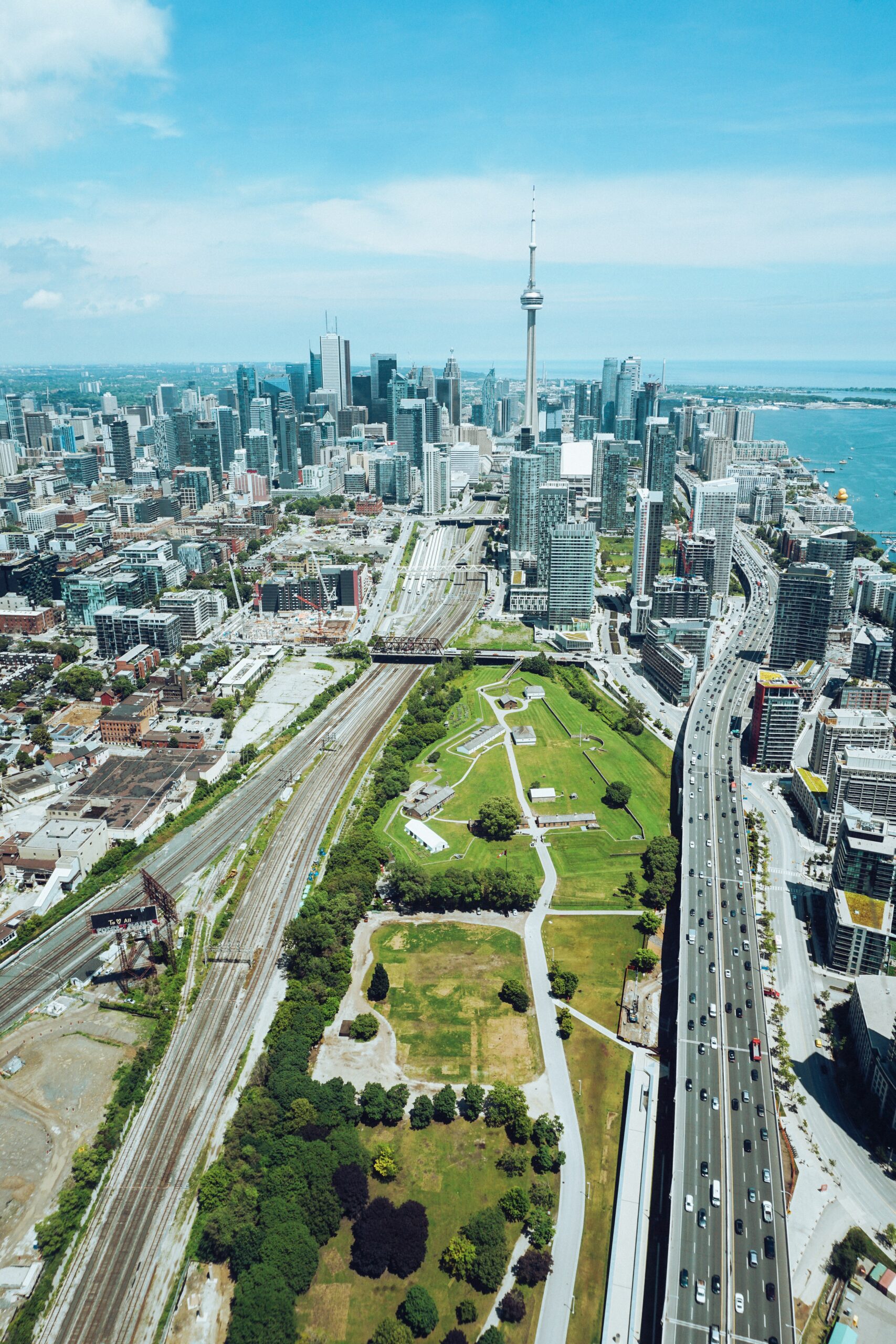
Land Acknowledgement
We acknowledge the land we work on is the traditional territory of many nations including the Mississaugas of the Credit, the Anishnabeg, the Chippewa, the Haudenosaunee and the Wendat peoples and is now home to many diverse First Nations, Inuit and Métis peoples. We also acknowledge that Toronto is covered by Treaty 13 with the Mississaugas of the Credit.
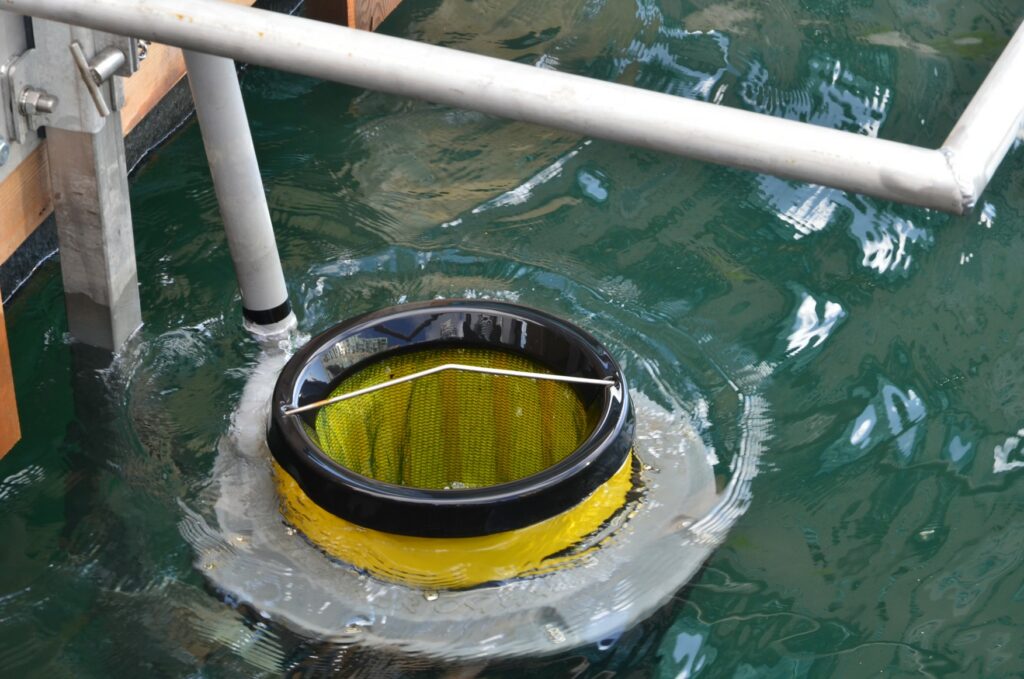
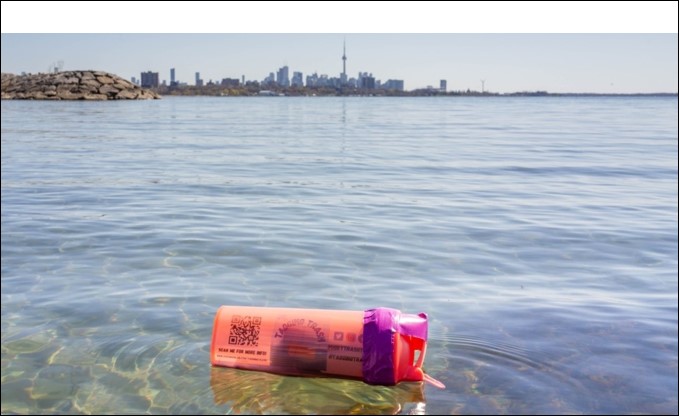
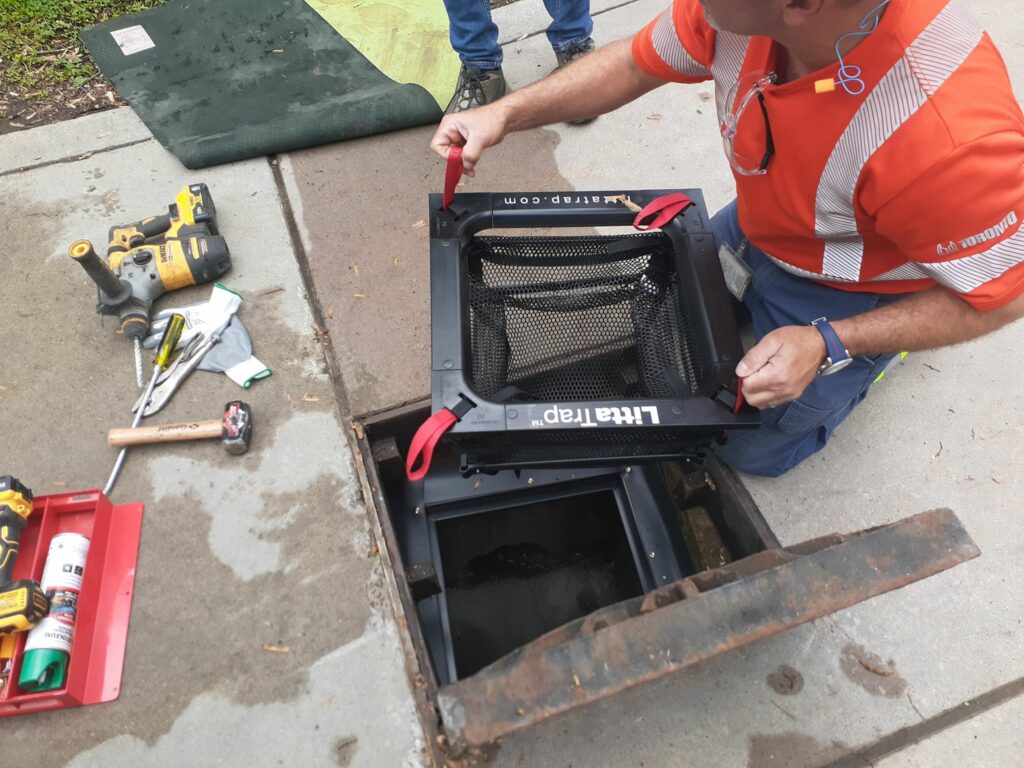
Project Outcomes
Partners in Project Green is proud to have sponsored the following research projects aimed at addressing pollution at the source.
In Pursuit of Polystyrene: determining the sources of polystyrene foam in Lake Ontario

WIPES VS. PIPES: Flushed Wet Wipes are a Significant Source of Plastic Pollution
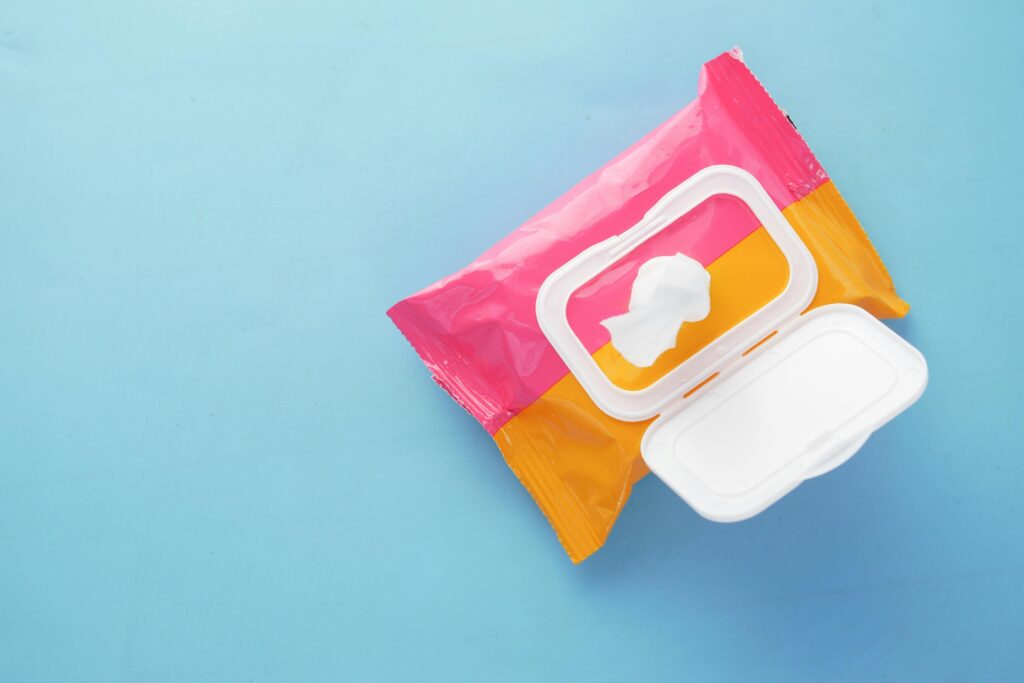
Ditching Disposables: Switching from Single-Use to Reusable in Toronto Restaurants
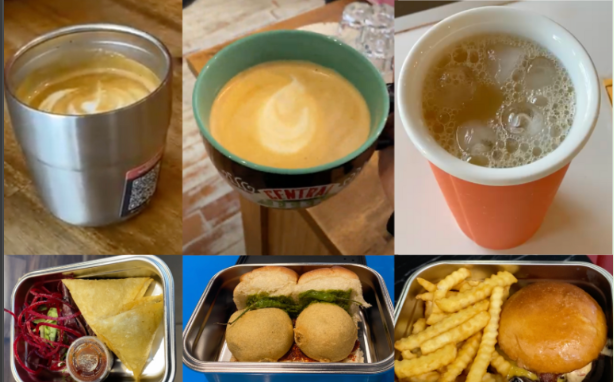
Documents: The Toronto Inner Harbour Floatables Strategy, Version 1.0 & Version 2.0
Collaborators
The following is a list of collaborating organizations supporting the shared vision of the Toronto Inner Harbour Floatables Strategy. The TRCA thanks these organizations for their on-going contributions.

Toronto and Region Conservation Authority
The Toronto and Region Conservation Authority oversees the Floatables Strategy through Partners in Project Green (PPG).
About the TRCA
With more than 60 years of experience, Toronto and Region Conservation Authority (TRCA) is one of 36 Conservation Authorities in Ontario, created to safeguard and enhance the health and well-being of watershed communities through the protection and restoration of the natural environment and the ecological services the environment provides.

Toronto & Region Remedial Action Plan
The Floatables Strategy helps keep the Toronto waterfront clean. Check out the Toronto & Region Remedial Action Plan webpage on aesthetic conditions of the Toronto and Area Region of Concern.
About the Toronto & Region RAP Team
The Toronto and Region Remedial Action Plan works with partners to:
- Create and restore fish and wildlife habitat and populations
- Identify and address sources of water contamination
- Clean up garbage and improve aesthetics
- Keep Toronto beaches clean and safe
- Decrease harmful contaminants in fish and wildlife
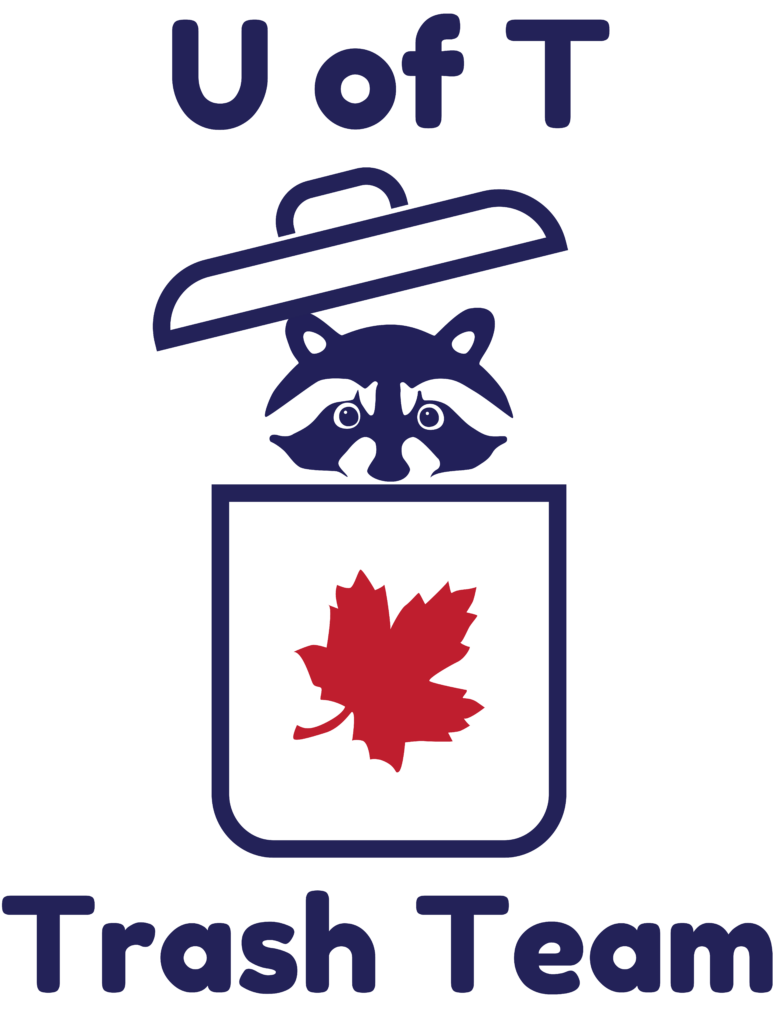
The University of Toronto Trash Team
Check out how the University of Toronto Trash (U of T Trash) Team is Fighting Floatables in the Toronto Harbour, and preventing pollution upstream.
About the U of T Trash Team
The University of Toronto Trash Team is a science-based community outreach group made up of undergraduate and graduate students, postdocs, researchers, local volunteers and staff working together to increase waste literacy in our community while reducing plastic pollution in our ecosystems. They were founded in 2017 in collaboration with the Rochman Lab, part of the Department of Ecology and Evolutionary Biology at the University of Toronto.
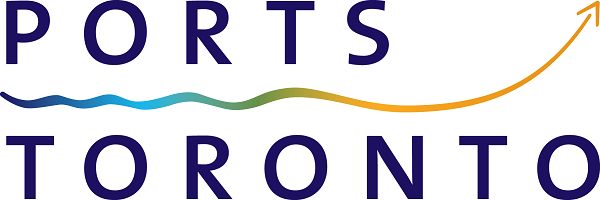
PortsToronto
Check out the PortsToronto Trash Trapping Program.
About PortsToronto
For more than 100 years PortsToronto has worked with its partners at the federal, provincial and municipal levels to enhance the economic growth of the City of Toronto and the Greater Toronto Area. PortsToronto owns and operates Billy Bishop Toronto City Airport, the Outer Harbour Marina and the marine Port of Toronto.
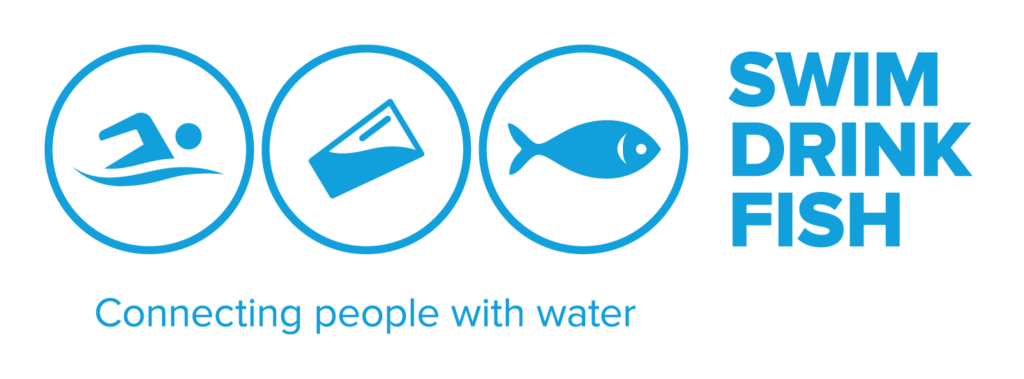
Swim Drink Fish
Check out SDF’s community-based water monitoring work, how to get involved, and the Swim Guide with water quality data.
About Swim Drink Fish
We protect water through technology, storytelling and building community advocacy. Our apps and programs connect communities with the water and with other people. We support communities to monitor the health of their water.
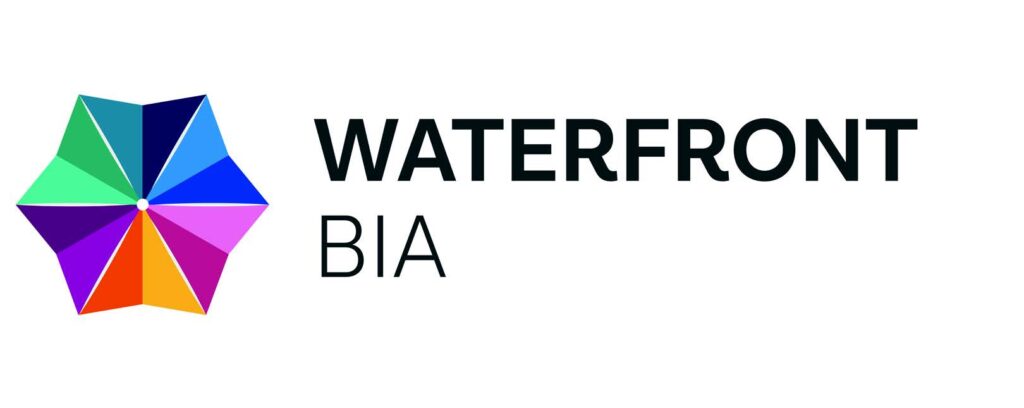
Waterfront Business Improvement Area
The Waterfront BIA are generous supporters of trash trapping in the Toronto Harbour. Check out the BIA’s interview with the UofT Trash Team: All About Seabins at the Toronto Waterfront.
About the Waterfront BIA
A stones throw from the downtown and financial core, the Waterfront BIA (previously known as Queen’s Quay Harbourfront) is the heart of the City’s central waterfront.
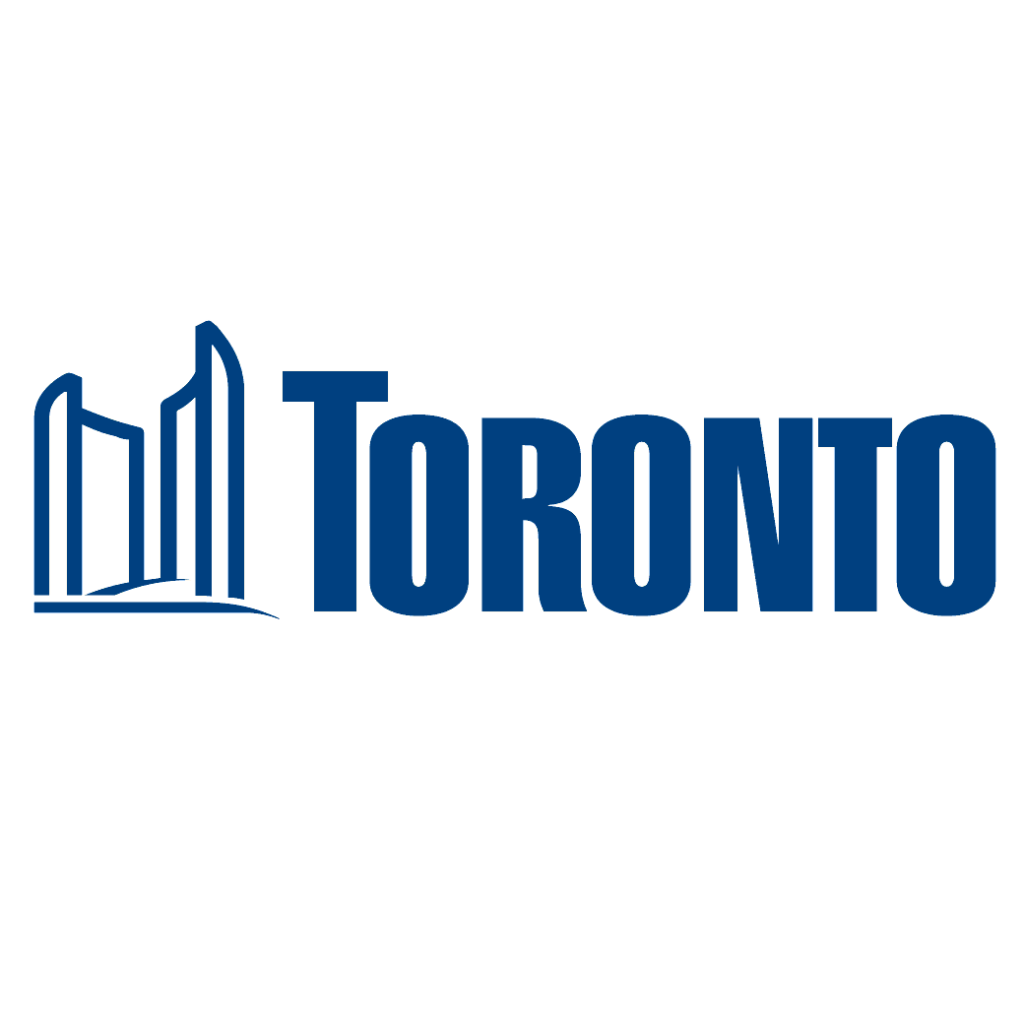
City of Toronto
Several City of Toronto Divisions support the Floatables Strategy.
Toronto Water has generously supported the LittaTrap pilot in partnership with the U of T Trash Team, capturing litter in catch basins before they enter Lake Ontario.
Solid Waste Management Services is supporting the transition away from single-use plastics (a common form of floatable debris) through their Single-Use and Takeaway Items Reduction Strategy. Stage 1 includes a voluntary program from businesses.
Parks, Forestry and Recreation owns two Seabins (procured with funding from MECP in 2021 with TRCA support) to capture litter offshore of the Toronto Islands.

Harbourfront Centre
Harbourfront Centre promotes environmentally-friendly boating in the Toronto Harbour through participation in Boating Ontario’s Clean Marine Program and distributing TRCA’s Green Boater Guide. Learn more here.
About Harbourfront Centre
Harbourfront Centre is an international registered not-for-profit focused on contemporary arts, culture and ideas operating a 10-acre campus on Toronto’s central waterfront.
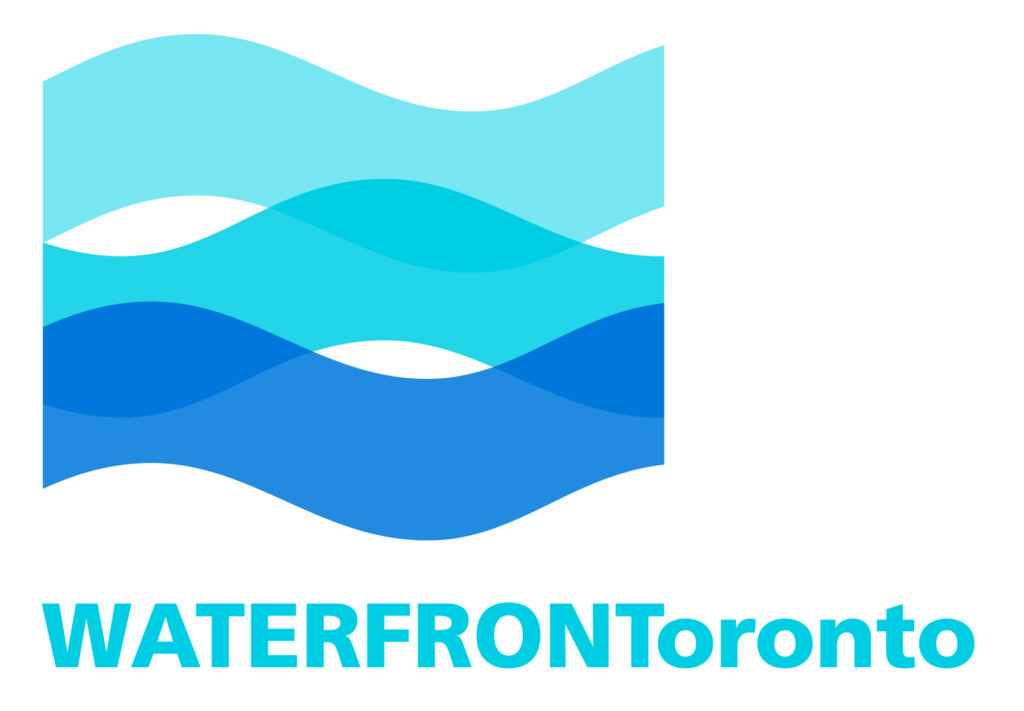
Waterfront Toronto
Waterfront Toronto was created by the City of Toronto, Province of Ontario and the Government of Canada to oversee and deliver the revitalization of Toronto’s waterfront. Our work is transforming 800 hectares of brownfield lands on Toronto’s waterfront into beautiful, accessible, sustainable mixed-use communities and dynamic public spaces.
Contact Us
To learn more about the Floatables Strategy and how to get involved, contact Chaya.chengappa@trca.ca.
